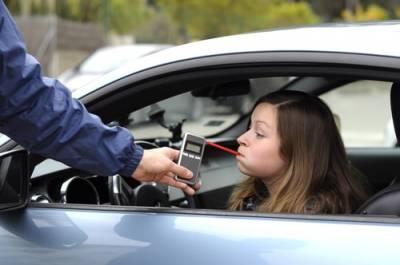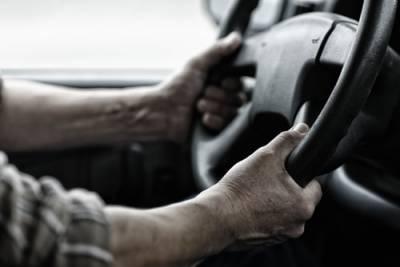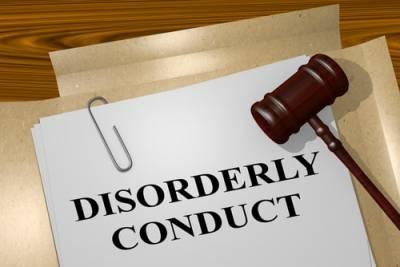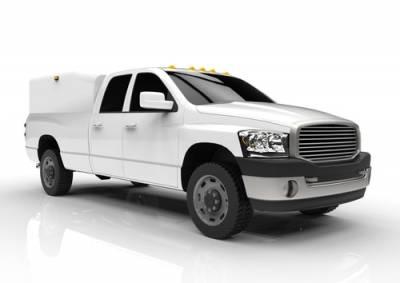Recent Blog Posts
Examining Illinois’ Blood Alcohol Concentration (BAC) Limits
 Blood alcohol concentration, or BAC, is a measurement of the alcohol in your body’s system. Register high enough, and you could be looking at a DUI charge. The following information can help you learn more about the BAC limits for different drivers, how your BAC at the time of arrest may impact your case, and what a criminal defense attorney can do for you.
Blood alcohol concentration, or BAC, is a measurement of the alcohol in your body’s system. Register high enough, and you could be looking at a DUI charge. The following information can help you learn more about the BAC limits for different drivers, how your BAC at the time of arrest may impact your case, and what a criminal defense attorney can do for you.
General BAC Limits in Illinois
Most Illinois drivers will fall under the general BAC limit of 0.08 percent. However, a driver may still be charged with a DUI if they show signs of impairment with a BAC of 0.05 or higher. Such signs could include anything from slurred speech, failure to pass a sobriety test, or swerving within one’s lane. However, these issues may not necessarily be connected to intoxication.
One may fail a field sobriety test completely sober (news sources have confirmed this), and slurred speech could be caused by other medical conditions. Swerving within one’s lane could occur because of night vision issues, debris in the road, and other matters unrelated to intoxication. Fight back against your DUI charges with help from an experienced attorney.
Frequently Asked Questions about Illinois Theft Crimes
 Illinois state law broadly defines theft. Unfortunately, because of the unspecific regulations, many citizens are left with answerless questions. In short, the definition of theft is taking ownership of anything that does not belong to you. The description applies to anything from stealing a car to failing to sign out of a rental home on time. When it comes to theft charges, questions are natural. Here are a few of the more frequently voiced concerns. Remember: to find answers specific to the details of your case; you should contact an attorney directly. The answers here are generalized and may not apply to your situation.
Illinois state law broadly defines theft. Unfortunately, because of the unspecific regulations, many citizens are left with answerless questions. In short, the definition of theft is taking ownership of anything that does not belong to you. The description applies to anything from stealing a car to failing to sign out of a rental home on time. When it comes to theft charges, questions are natural. Here are a few of the more frequently voiced concerns. Remember: to find answers specific to the details of your case; you should contact an attorney directly. The answers here are generalized and may not apply to your situation.
How Are the Varying Degrees of Theft Differentiated?
Theft breaks down into several levels dependent on the dollar amount of the item or items taken. In Illinois, the breakdown is as follows:
- Class A misdemeanor: $500 or less of personal property or $300 or less of retail property,
Truck Drivers and Traffic Tickets
 No two truck driving jobs are alike. For some, you work with one company delivering goods to homes within the same city. On the other side of the spectrum, some truckers deliver goods thousands of miles away to other states and countries. Although recent technological innovations make navigating the roads easier, truckers must still abide by federal and state traffic laws. What happens when these truckers get a citation for a traffic violation in Illinois if this is not their home state?
No two truck driving jobs are alike. For some, you work with one company delivering goods to homes within the same city. On the other side of the spectrum, some truckers deliver goods thousands of miles away to other states and countries. Although recent technological innovations make navigating the roads easier, truckers must still abide by federal and state traffic laws. What happens when these truckers get a citation for a traffic violation in Illinois if this is not their home state?
How Do Truck Drivers Handle Speeding Tickets?
According to the Federal Motor Carrier Safety Administration (FMCSA), one of the five most ticketed truck driving behaviors is speeding between six and ten miles per hour over the speed limit. Commercial drivers have the opportunity to pay the citation or to plead “not guilty” and potentially go to court. If you would like to maintain your career and continue earning money, take it to court to fight the citation. Trucking companies use a Safety Measurement System (SMS) to implement and record safety regulations. Most violations are ranked and assigned severity points based on the amount over the speed limit. A driver becomes less employable as this number rises. The table is as follows:
The Top Driving Mistakes Made by CDL Holders
 Commercial Driver’s License (CDL) holders go through a difficult process to obtain their licensure. Once achieved, drivers are held to a higher standard within the community, both on and off the clock. Whether in their company vehicle or their personal vehicle, their attention to their driving must be impeccable for risk of losing their license, jeopardizing both their employment and their future. What are some of the top mistakes made by CDL holder’s that can result in traffic violations and put their licensure in danger?
Commercial Driver’s License (CDL) holders go through a difficult process to obtain their licensure. Once achieved, drivers are held to a higher standard within the community, both on and off the clock. Whether in their company vehicle or their personal vehicle, their attention to their driving must be impeccable for risk of losing their license, jeopardizing both their employment and their future. What are some of the top mistakes made by CDL holder’s that can result in traffic violations and put their licensure in danger?
Attempting a Difficult Parking Spot to Avoid the Extra Walk
Did you know that most trucking accidents occur at truck stops? Some of these do involve truckers trying to pull into a closer and tougher parking spot than utilizing the ample space available a few feet away. Large trucks are not known for having a small turning radius, and because of this, you should allow yourself the proper room for maneuverability to avoid a collision. While one accident may not lose your licensure, several just might. Remember that truck and trailer tandem on different tracks and the repair of someone else’s vehicle may be close to $15,000.00, dependent on the amount of damage.
Three Tips to Avoid a DUI This Summer
 Summer is a time to live footloose and fancy-free. The days are longer, and the schedules are slower enabling a significant portion of the population to sit back, kick their feet up, and have a cold alcoholic beverage. If you add on to the relaxation the fun holiday parties that occur throughout the season and extended vacations, you have yourself the perfect setting to create lasting memories for years to come. No one wants this happy time of year tainted with the memory of a DUI. It is best practice to avoid a DUI whenever possible.
Summer is a time to live footloose and fancy-free. The days are longer, and the schedules are slower enabling a significant portion of the population to sit back, kick their feet up, and have a cold alcoholic beverage. If you add on to the relaxation the fun holiday parties that occur throughout the season and extended vacations, you have yourself the perfect setting to create lasting memories for years to come. No one wants this happy time of year tainted with the memory of a DUI. It is best practice to avoid a DUI whenever possible.
Tip #1: Know Your State Laws
Illinois harshly punishes those convicted of DUI. DUI is driving under the influence of alcohol or other intoxicating substance. State law makes it illegal to drive while impaired by medication or a controlled substance, or:
- Have a blood alcohol content (BAC) of .08 or more,
Leaving the Scene of an Accident as a CDL Holder
 For most Commercial Driver’s License (CDL) holders, the license is not just something they earn “for fun.” Although they may also find the position enjoyable, and many do, CDL holders go to great lengths to obtain their licensing, and it becomes a part of their finances as well as their way of living. The validity of their license directly impacts their ability to obtain and maintain employment. Drivers are held to a higher standard, and many traffic violations that may result in a lighter punishment under other circumstances can disqualify a CDL holder, such as leaving the scene of an accident, for example. A license disqualification interrupts the earning capacity of the driver, leaving many seeking other forms of gainful employment.
For most Commercial Driver’s License (CDL) holders, the license is not just something they earn “for fun.” Although they may also find the position enjoyable, and many do, CDL holders go to great lengths to obtain their licensing, and it becomes a part of their finances as well as their way of living. The validity of their license directly impacts their ability to obtain and maintain employment. Drivers are held to a higher standard, and many traffic violations that may result in a lighter punishment under other circumstances can disqualify a CDL holder, such as leaving the scene of an accident, for example. A license disqualification interrupts the earning capacity of the driver, leaving many seeking other forms of gainful employment.
Why Do People Leave The Scene?
It is never a good idea to abandon the site of an accident, for any number of reasons. First off, regardless of driver’s license class, it is against the law, potentially resulting in jail time, hefty penalties, and loss of licensure. However, you must also consider the impact of the other driver and their medical condition, your insurance rate hikes, and you open yourself up for a personal injury lawsuit. A general rule of thumb, it is a good idea to stay where you are. However, many do choose to flee, citing the following reasons:
How Did the DUI Charge Escalate to a Felony?
 In Illinois, a conviction of driving under the influence (DUI) is considered a misdemeanor. This fact is not saying that Illinois does not take DUI seriously, as there are approximately 35,000 people arrested annually for DUI-related charges. A misdemeanor conviction is also not getting away easy, as the state estimates that the total cost of a first-time DUI totals approximately $16,000.00 after the loss of licensure resulting in loss of income, insurance rate increase, fines, and other court costs. However, not all cases are created equal, and occasionally, clients are surprised to discover their charges are more severe than anticipated, that they face felony DUI charges instead. How does that happen and what does that mean for the future, if convicted?
In Illinois, a conviction of driving under the influence (DUI) is considered a misdemeanor. This fact is not saying that Illinois does not take DUI seriously, as there are approximately 35,000 people arrested annually for DUI-related charges. A misdemeanor conviction is also not getting away easy, as the state estimates that the total cost of a first-time DUI totals approximately $16,000.00 after the loss of licensure resulting in loss of income, insurance rate increase, fines, and other court costs. However, not all cases are created equal, and occasionally, clients are surprised to discover their charges are more severe than anticipated, that they face felony DUI charges instead. How does that happen and what does that mean for the future, if convicted?
First-Time DUI?
Even if this is your first experience with a DUI, it is possible to be facing felony charges. The prosecution must prove that the driver had a 0.08% blood alcohol concentration (BAC) or was impaired to have any leverage in court. These factors alone may result in the initial misdemeanor charge. However, if your situation involves another more severe factor, your case may jump to aggravated DUI, which is a felony charge. Factors that can make the difference include:
Explaining Disorderly Conduct Classifications with Examples
 Summer is here: the days are long, the nights are short, and the temperature is perfect for relaxation. This time of year, time seems to slow down, enabling society just to enjoy the ride of life. However, this slowdown leads to a particular element of restlessness, leading individuals to find their means to fill the time, often leads to loitering, peace disturbances, and other minor crimes. Unfortunately, many of these behaviors are rolled together into a single criminal charge of disorderly conduct. There are several classifications of disorderly conduct, including infractions, misdemeanors, and felonies. The legal definition of the charge is vague, encompassing many actions that many do not realize are in direct violation of the law.
Summer is here: the days are long, the nights are short, and the temperature is perfect for relaxation. This time of year, time seems to slow down, enabling society just to enjoy the ride of life. However, this slowdown leads to a particular element of restlessness, leading individuals to find their means to fill the time, often leads to loitering, peace disturbances, and other minor crimes. Unfortunately, many of these behaviors are rolled together into a single criminal charge of disorderly conduct. There are several classifications of disorderly conduct, including infractions, misdemeanors, and felonies. The legal definition of the charge is vague, encompassing many actions that many do not realize are in direct violation of the law.
Infractions and Misdemeanors
Disorderly conduct is an all encompassing charge for a broad range of behavior. The simple form of the definition states that laws are broken when personal behavior alarms or disturbs another person or provokes a break in the peace. This description leaves many citizens unaware that their choices may cause legal trouble. You do not have to cause harm or destroy property, only behaving in a manner that may annoy someone else falls under this catch-all charge. Examples of behaviors that may result in a lower level infraction or misdemeanor include:
The Legal Impacts of Drinking and Driving with Children Present
 Sometimes you have no other choice but to pick up your children after drinking. Consider this scenario: you and your spouse are out to enjoy an anniversary celebration meant to last all night. You went the extra measure to hire a babysitter for the evening. Perhaps you even left emergency contact information for local friends or family in the area in case of an emergency. After midnight, you get a dreaded phone call that one of your child is throwing up and has a fever and none of the emergency contacts are answering their phones. Luckily, you have only had a few alcoholic beverages, and you feel confident in your driving abilities enough to go to get them. However, on the return trip home with a car full of the smells of a sick child, you get pulled over by an officer having a bad night. The mixture of the odors in the car lead the police to believe you may be intoxicated and to top off the night, you fail the sobriety test, leading to a DUI. What happens next?
Sometimes you have no other choice but to pick up your children after drinking. Consider this scenario: you and your spouse are out to enjoy an anniversary celebration meant to last all night. You went the extra measure to hire a babysitter for the evening. Perhaps you even left emergency contact information for local friends or family in the area in case of an emergency. After midnight, you get a dreaded phone call that one of your child is throwing up and has a fever and none of the emergency contacts are answering their phones. Luckily, you have only had a few alcoholic beverages, and you feel confident in your driving abilities enough to go to get them. However, on the return trip home with a car full of the smells of a sick child, you get pulled over by an officer having a bad night. The mixture of the odors in the car lead the police to believe you may be intoxicated and to top off the night, you fail the sobriety test, leading to a DUI. What happens next?
A CDL for Your Daily Driver
 There are many hardworking Americans who own trucks as their daily drivers. Some use it for off-road adventures, others for the feel of having something larger, and another portion uses it for work and project related towing. However, especially in a few of the newer trucks, you may need CDL licensure to operate your vehicle and avoid a traffic violation, regardless of the purpose of use. While each state regulates many of their requirements, federal regulations are in place for many interstate highways and close to the border.
There are many hardworking Americans who own trucks as their daily drivers. Some use it for off-road adventures, others for the feel of having something larger, and another portion uses it for work and project related towing. However, especially in a few of the newer trucks, you may need CDL licensure to operate your vehicle and avoid a traffic violation, regardless of the purpose of use. While each state regulates many of their requirements, federal regulations are in place for many interstate highways and close to the border.
Does Your Truck Require a CDL?
Most major vehicle manufacturers now produce a one-ton dually for those requiring the durability and ability to pull a house, if necessary. The Commercial Motor Vehicle Safety Act of 1986 requires many drivers of these vehicles to obtain a Commercial Driver’s License, even if it is not being utilized for commercial purposes. The guidelines for those requiring a CDL include:



